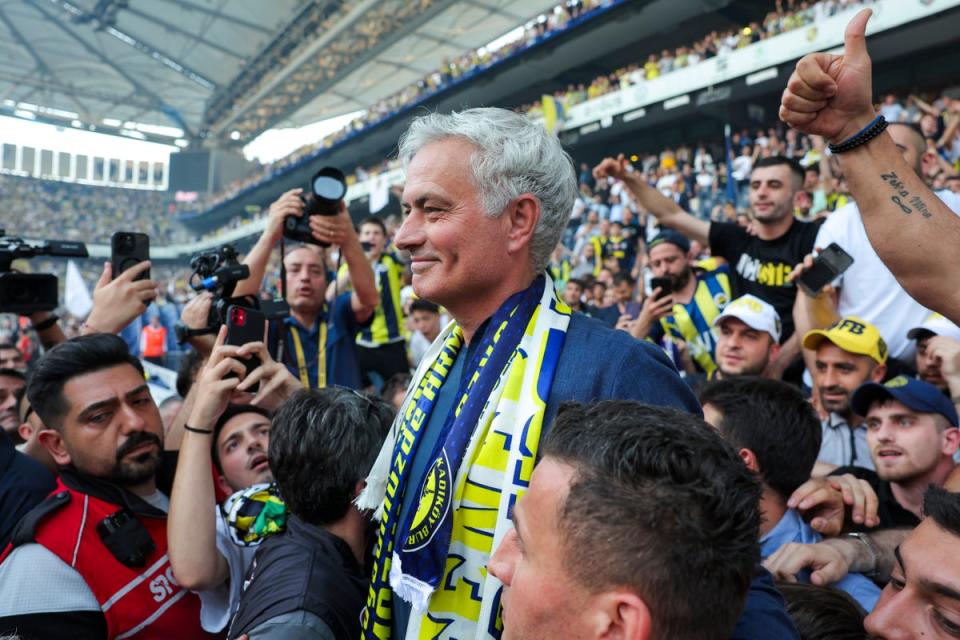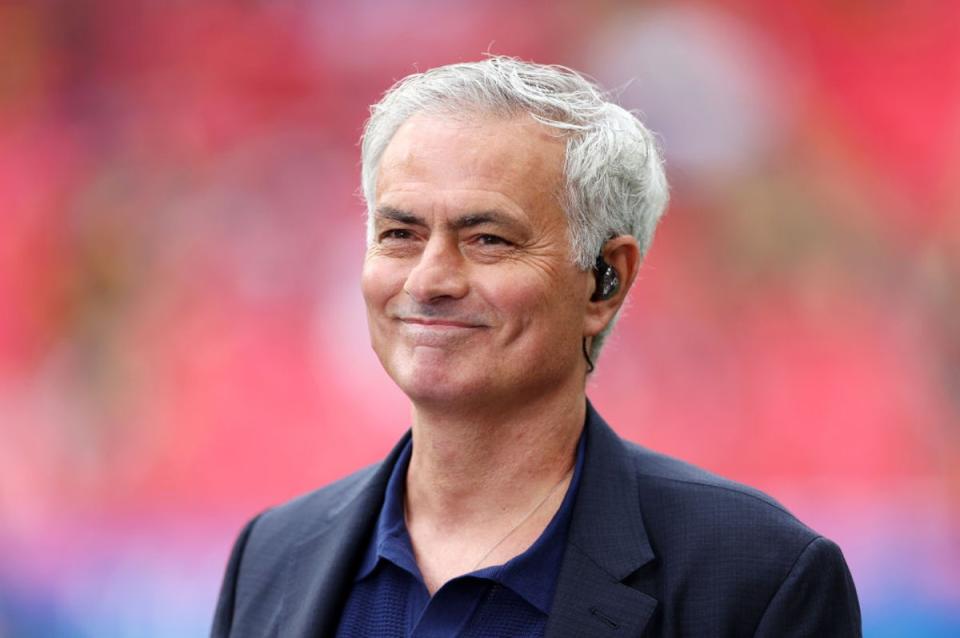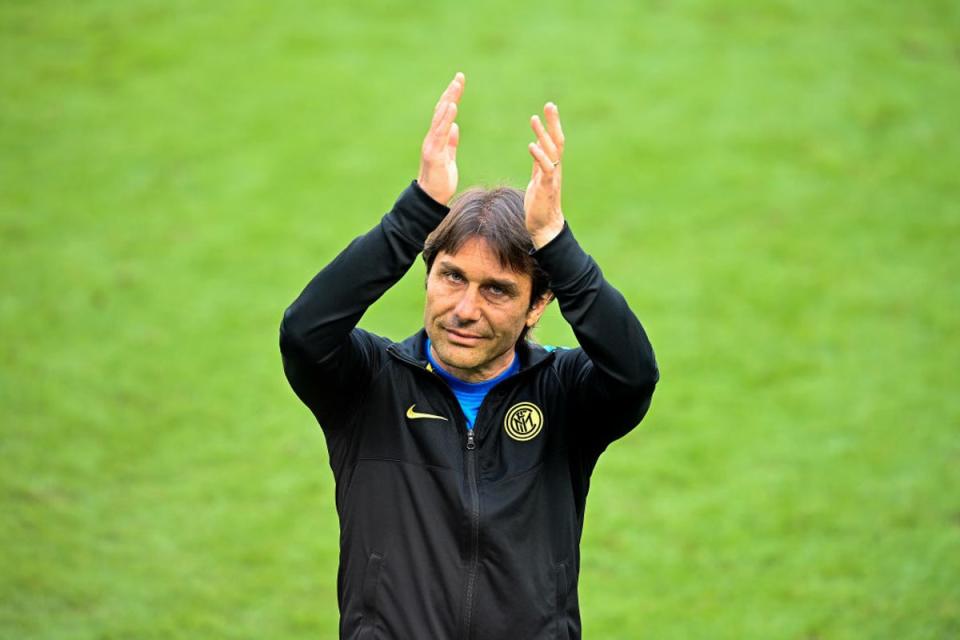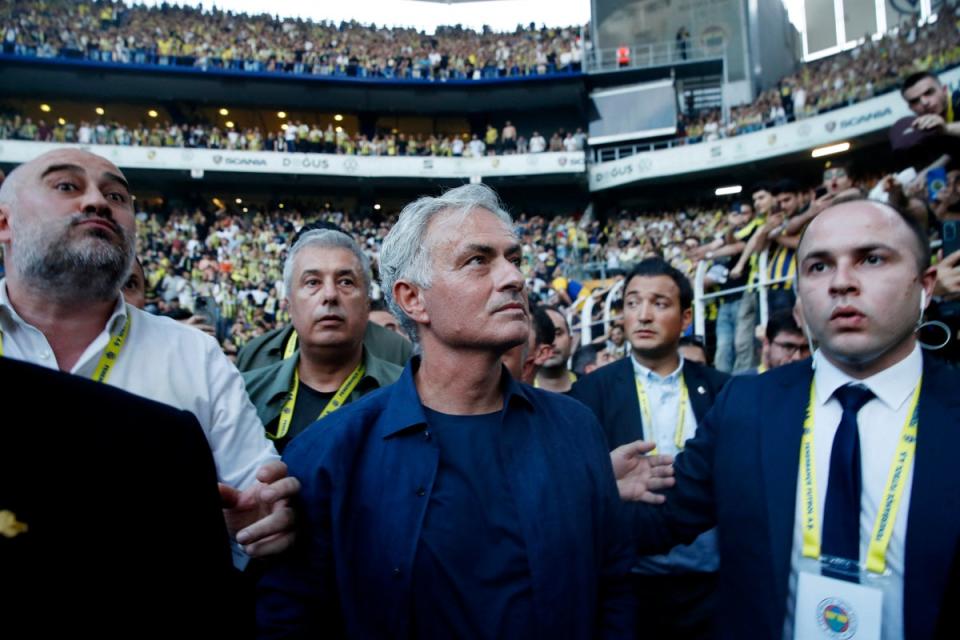Jose Mourinho, Antonio Conte and the slow decline of football’s star managers

A nickname is two decades old. The man who coined the phrase often used to describe him is more than three times as old. Jose Mourinho was unveiled at Fenerbahce on the 20th anniversary of his arrival at Chelsea; the day he pronounced himself special. The euphoric reception in Istanbul was a reminder of his enduring star quality; the indication instead of how far the mighty has fallen lies simply in the fact that Mourinho is now working in the Turkish league.
The Special One has often been greeted with taunts that he isn’t special any more. In a summer when two of the major managerial jobs have gone to Enzo Maresca and Vincent Kompany, when clubs from AC Milan to Barcelona, Bayern Munich to Chelsea, Juventus to Liverpool have looked for managers with no hint of interest in Mourinho, the more telling verdict may have come from the kinds of people who used to queue up to employ him.
On TNT Sports on Saturday, when Mourinho again demonstrated that he could have an afterlife as a great pundit, they unhelpfully reminded him that Edin Terzic is 41, the age he was when he first managed in a Champions League final. You were the future once, Jose. Now the age-old test – put your medals on the table – has become redundant as clubs look for managers who could capture the zeitgeist or who have links to Pep Guardiola (though in fairness to Mourinho, Thiago Motta and Xabi Alonso also played for him).
If nothing else, Mourinho is testament to football’s addictive properties. He will not leave the game at his peak or its. The competitive juices still flow, though: being Jose Mourinho has brought him offers from Saudi Arabia, he has said, almost certainly more lucrative than his Fenerbahce contract. So the quest for meaningful success remains more seductive, even if the trophies are less glamorous. A double Champions League winner became the first Conference League winner; Mourinho continues to trumpet the feat. He carries on managing.

A couple of months ago, Jurgen Klopp reflected: “The dinosaurs if you want, [Carlo] Ancelotti, Mourinho, Guardiola, maybe me, we will not do it [manage] for the next 20 years; okay, maybe Mourinho.” Which, if insightful, was both damning and deceptive. Klopp and Guardiola remain in vogue, their ideas very current. Ancelotti seems timeless, winning the Champions League even before Mourinho and long after his 2004 and 2010 triumphs. Then there is Mourinho, the tactical dinosaur.
Klopp did not mention a younger dinosaur. Mourinho and Antonio Conte will both return to management this week, the latter with Napoli, each after being overlooked elsewhere by clubs who plumped for less decorated managers. Their CVs have common denominators – Inter, Tottenham, Chelsea – and shared features. Until Simone Inzaghi this year, they were Inter’s last two Serie A-winning managers; along with Ancelotti, they are two of the trio to make Chelsea Premier League champions. Each started well at Tottenham; predictably, neither proved a good fit.
Not that Conte and Mourinho are exactly soulmates. In 2018, the Italian famously branded the Portuguese “a little man”. Clubs of the size of Fenerbahce and Napoli, with the fanaticism of their supporters, would deny their jobs have got smaller; but maybe the horizons have. Fenerbahce will enter the Champions League, but at the second qualifying stage; Mourinho, who has still not won a knockout tie in it since 2014, is unlikely to have another. Napoli are not even in Europe after coming 10th in Serie A.
That could be a platform for success. Chelsea finished 10th in 2016 before appointing Conte and became champions a year later. Yet that was his arguably last exceptional feat, just as perhaps Mourinho’s was deposing Guardiola’s Barcelona to win La Liga in 2012, completing a personal golden decade. Mourinho won a weakened Premier League in 2015, Conte Serie A in 2021 in what was an unaffordable Scudetto, financed by overspending. Inzaghi’s rather cheaper triumph was an indictment of his predecessor.

But Conte seems to think that giving him unlimited resources is a prerequisite. His new employer thinks that is anathema. Conte and Aurelio de Laurentiis seems a match made in hell. There are clubs who refuse to deal with the Napoli president because he is too awkward. There are clubs who don’t consider appointing Conte because he is too awkward. De Laurentiis contrived to alienate his Serie A-winning coach, Luciano Spalletti. Conte has forged a persona as the most unreasonable man in management. He seems to feel that is essential to being a winner.
And succeeding with this Napoli instead entails Conte proving – as he has before – his tactical expertise. The Serie A-winning side is being broken up. Kim Min-jae left last summer, Piotr Zielinski will go now – the post-Conte Inter have had to become adept at free transfers – and Victor Osimhen is likely to follow. Some of the others overachieved under Spalletti.
There is at least scope to improve Napoli after the underachievement of a bottom-half finish, after the mistakes of appointing Rudi Garcia and Walter Mazzarri. Mourinho takes over a Fenerbahce team who won 99 points under the dismissed Ismail Kartal. Logically, the only way is down. Logically, too, Kartal should not have been jettisoned.

But Turkish clubs are infamously willing to sign anyone who has played for the Premier League’s big six; Mourinho has managed three of them. If this is the first time he is found outside the major four European leagues since he left Porto 20 years ago, he can be presented as the biggest ever appointment in Turkey.
He made a typically impressive start. “I belong to your family,” he said at his unveiling. “This shirt is my skin. Your dreams are now my dreams.” So begins the cycle of crowd-pleasing soundbites, early optimism, declining results, negative rhetoric and the probable sacking. It may be cynical to suggest that Mourinho should find a receptive audience for his inevitable complaints about referees in Turkey; inference of conspiracies tend to go down well there. Conte shares his tendency to blame anyone else when a certain sourness sets in.
Which, in turn, is a reason why neither stays anywhere very long, a factor when the more prestigious posts go to men they presumably think are less qualified. And when each takes the kind of job he would not have considered in his prime, Jose Mourinho and Antonio Conte may face an unpleasant truth. Each might disagree, but the wider world thinks they are in decline.

 Yahoo Sports
Yahoo Sports 
